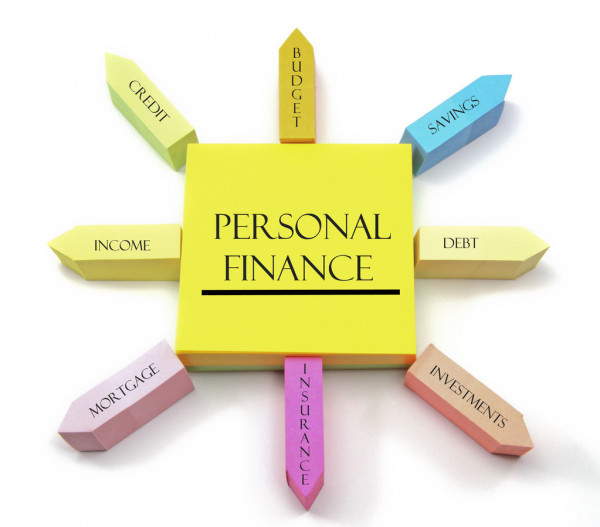Why Having the Correct Investment Psychology Is More Important Than The Capital Itself
Having the correct investment psychology is way more important than the capital itself. But I know this might sound ridiculous, especially for newbies trying to set their feet into the world of investment. For the experienced investors, they can bear witness.
Tom Basso, the author of ‘Panic-Proof Investing: Lessons in Profitable Investing from a Market Wizard,’ puts it even better in a quote,
‘I think investment psychology is by far the more important element, followed by risk control, with the least important consideration being the question of where you buy and sell’.
Basso is an experienced American hedge fund manager. He is full of wisdom, wit, and practical advice about having the right investment psychology as an investor.
Even to the insiders, it’s best to perceive that the entire investment process is a roller coaster of emotions. Thus, having the best investment psychology is essential to keep you in the game for long.
It’s Not All about Having Investment Capital
I have interacted and read of investors who have lost huge amounts of money in their investments. Perhaps you’ve come across such investors as well. If not, I’ll give you a story about myself.
When I began investing in foreign currencies, I spent more time learning about the forex market. It took me close to eight months to learn the theory and practical talk of almost everything that needed to be learned and begun my investment journey. I started with a $1,000 investment and made some good profits at first, which prompted me to add more capital. I topped up an additional $2,000, but sincerely speaking, within a week, I had only $556 left. Despite being best at analyzing charts and having a substantial amount of investment capital, I lost it.
To cut a long story short, it’s not until one evening that I decide to dig deeper, to understand why I am losing money, despite spending more time learning. It’s when I learned that investing is not about having skills and capital. Instead, it’s about having the correct investment psychology. I wouldn’t want you to learn the hard way like I did. The reason you need to stick till the end.
What the Heck is Investment Psychology?
Investment psychology entails the behavior of investors; what they do, how they act, what they believe. It falls under the field of behavioral finance, which according to the Farlex Financial Dictionary;
‘it’s a theory in finance that attempts to explain investors’ decisions by viewing them as rational actors looking out for their self-interest, given the sometimes inefficient nature of the market’.
Behavioral finance combines economics and psychology to explain how and why investors act and analyzes how their behaviors affect the market and their investment decisions.
Investors Psychological Mindset

Source: DailyFX
I was too quick to dismiss psychology as a factor in my development to be a successful investor. I wouldn’t want you to lose your hard-earned money like I did because you haven’t mastered the correct investment psychology.
Listen carefully. To enhance your skills as an investor, you’ll need to comprehend how you think, the reason you react in different ways, and be aware of the beliefs or biases that affect your decision-making.
To develop the correct investment psychology, you must be in a position to control your emotions, such as denial, ego, pride, greed, and/or fear that you might experience along the way. These are emotional factors that may impact how you invest and the decisions you make regarding your investments.
“Winners think differently… it is not how much you know, though knowledge is important. It is not how hard you work, though nothing worthwhile is achieved without hard work. It is not the depth of your experience, though you cannot become a seasoned operator without it. The real difference is the way winners think”.
I want to echo the words of Colin Nicholson from his book Building Wealth in the Stock Market. Most investors, especially starters, think that finding the ‘right’ strategy, having investment capital, and following their plan is the holy grail. Yes, it’s important to do all that. But how will you react and feel once you’ve made your investment and the market start to correct itself, and you’re now in a losing trade? Unfortunately, for many newbies, and even some experienced investors, they will sit down and watch their investment dwindle in value. The emotions of not wanting to lose money will develop in them. As a result, they will hold onto their losing position in the hopes that ‘whatever goes down goes up,’ so they will recover. This is what made me lose money at the beginning, not even greed.
According to studies by Wellcome Trust, scientists have discovered that losing money may be intrinsically connected with pain and fear in the brain. Another study by Amos Tversky, a mathematical psychologist, and Daniel Kahneman, Nobel Prize winner, discovered that investors feel the pain of losing twice as much as the joy of an equivalent gain. They defined this as ‘loss aversion.’ This is what makes investors hold onto losing trades instead of selling them to safeguard their capital to invest another day. It’s emotions that hijack their decision-making skills, and they end up holding their losing positions for a longer time and close their winning positions early. Instead, it should be the other way round, cutting losses early and letting profits run.
Common Investment Psychological Mistakes and How to Overcome Them

Source: DailyFX
“The investor’s chief problem—and even his worst enemy—is likely to be himself” – Benjamin Graham
The investment process is not as smooth as it sounds. Instead, it’s a cyclical process, which includes sourcing information, selecting assets, holding them, and selling, followed by picking a new selection. In between, there are many psychological pitfalls—a roller coaster of emotions, which makes most investors make the following common investment psychological mistakes.
Fear and Greed
Fear and greed are common mistakes that affect the investment psychology of most investors. The market is driven by two emotions: fear and greed. This is a common saying on Wall Street. Unfortunately, falling victim to these emotions can also awfully harm investor portfolios and the solidity of the financial markets.
Most investors want to get rich quickly. As a result, they get exceedingly greedy and invest in excess, and when the markets correct, they lose money. A good example was the Internet boom in the late 1990s when most investors pitched the ‘dotcom’ investments. Most of the investors during that time became greedier and invested in such stocks in excess. However, between 2000 and 2002, the price depressed, and many lost many. When the markets suffer huge losses for a prolonged period, investors become fearful, and to avoid more losses, they begin to sell. As greed dominates during a boom, fear prevails during a bust.
Allowing fear and greed to control your investment behavior culminates in irrational decision-making that can lead to losses. Therefore, it’s best to ignore the trend and adhere to a long-term plan founded on good fundamentals. Also, it’s vital to comprehend how risk-sensitive you’re as an investor and to ensure you set your assets allocations appropriately when greed and fear invade the market.
Overconfidence
Overconfidence is an emotional bias that affects investment psychology of investors. Being confident is a valuable trait. But if overlooked, it can lead to overconfidence, which can cause biased investment psychology, leading to bad decisions. Investing entails complex future predictions; thus, overconfident investors tend to overestimate their capabilities to spot successful investments. According to a study by the Federal Research Division, Library of Congress Washington DC, experienced investors often overestimate their abilities (become overconfident) more compared to the average person.
If not checked, overconfidence can result in investment fraud. But it’s impossible to forecast with certainty which direction the financial markets will go in the short-term. To avoid overconfidence in investing, it’s best to adhere to a long-term outlook and ignore the temptations of short-term results. Also, utilizing a sundry portfolio to center on snowballing your wealth for the long-term can alleviate being overconfident and the inclination to make risky predictions.
In Conclusion
Having the correct investment psychology is fundamental to the success of every investor. This calls for the need to have an actionable and sound investment thesis. Sticking to a workable strategy will guide investors during a period of uncertainties. It will help them to avoid the urge to panic and offset their assets during market corrections or when chasing hyped-up assets trading at fleeting levels. Understanding the influence of fear, greed, and overconfidence on investors’ psychology can help mitigate the emotions they bring about. Knowing how to deal with such emotions will assist investors in developing the correct investment psychology. Also, investors ought to constantly remind themselves why they invested in the first place. This will help keep emotions in check and avoid the common investment psychological mistakes.
At Investors Hacks, we endeavor to ensure you have the correct investment psychology. So kindly share your thoughts with us here.
Image Credit: Beaxy



